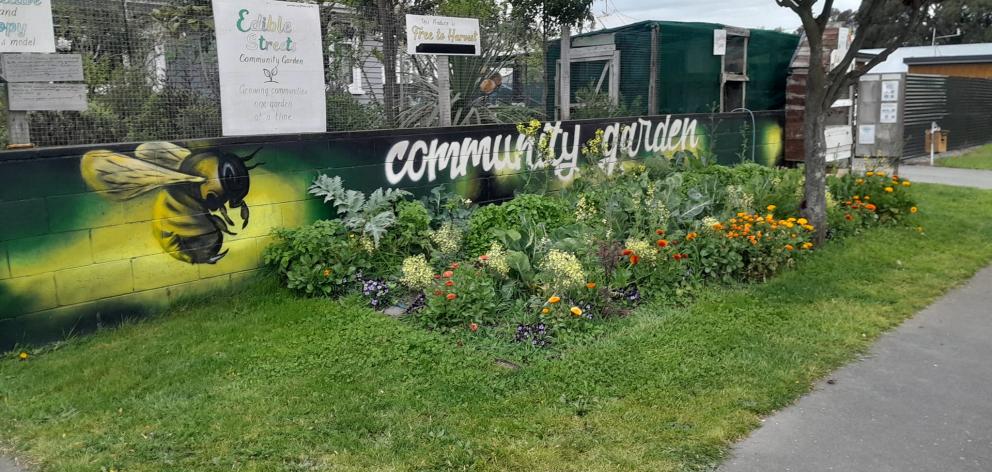

The berms must be set against the property edge, not the road, with the plants not exceeding 1m in height.
Founder and arborist Zane Crofts said Christchurch City Council staff did not give permission for each garden, as required, but gave an assurance of support and oversight to prevent any issues.
"I always wanted to try it, but I didn’t want to get in trouble with council," said Crofts.
"After I talked to them, they were open to the idea."
Crofts also manages the food forest at the Climate Action Campus on Avonside Drive.
Officially residents are required to get permission for any modifications to berms, which are city council property.
This leaves the project in a "legal grey area", Crofts said, but he hopes the city council will consider relaxing the rules if Edible Streets is successful.
"At the moment, I’m hoping the gardens can act as a guideline for any rule changes."

"All complaints will be directed to Edible Streets for them to manage," Wright said.
"The council requires Edible Streets to manage and maintain these sites safely, and will assist where required."
Crofts hopes the New Brighton plantings are just the start of the venture.
He will give away 10 sets of seeds, soil and compost in autumn and spring to properties interested in growing a berm garden.
He will also help the owners plant the gardens with fruit, vegetables or medicinal herbs of their choice.
Even with the current official policy, Christchurch City Council is more lenient than others around New Zealand.
A New Plymouth woman was threatened with a $1000 fine last month if she did not remove fruit trees planted outside her property.
Auckland Council also has rules against berm planting, but Palmerston North City Council actively encourages it.
Croft said councils should embrace ideas like food sovereignty and community-grown produce.
“There’s so many issues that threaten the chain of food security from war to economic issues.
"I want to help communities become more self-reliant."













